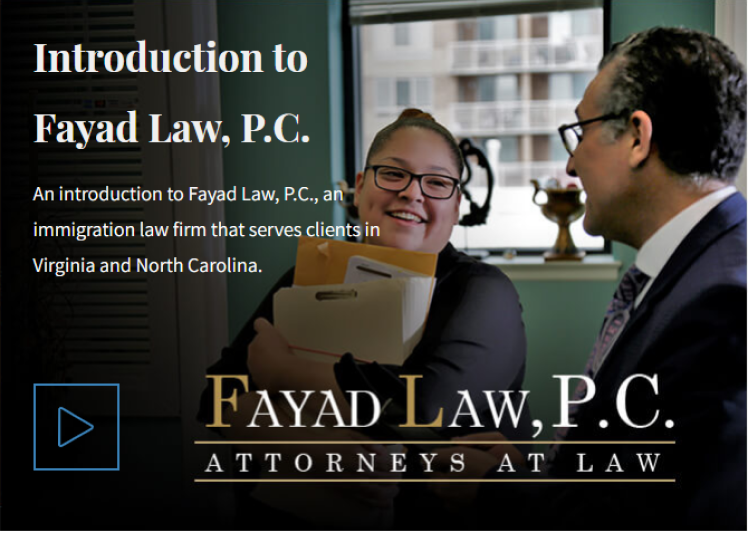Usted todavía tiene la oportunidad de convertirse en ciudadano de EE.UU. y cambiar el curso de la historia
GET THE LEGAL HELP YOU NEED
Usted todavía tiene la oportunidad de convertirse en ciudadano de EE.UU. y cambiar el curso de la historia
18 de junio de 2014
La semana pasada, Eric Cantor, el hombre número dos en el partido republicano fue derrotado en las primarias republicanas para el 7 º Distrito Congresional de Virginia. Este evento tendrá un gran impacto en muchas áreas de la vida política del estado y de la Cámara de Representantes.
Pero aparte de su aspecto político, esta derrota trae de nuevo el tema de la importancia de participar en la vida política de la ciudad, del estado y la nación en general. Si le gusta ver cambios en su vida necesita involucrarse en la vida política a su alrededor. La implicación más típica pasa por el ejercicio del derecho y el deber de votar o ser elegido. Hoy como nunca antes, es muy importante para todos los latinos la participación en el sistema político con el fin de hacer lo que sea necesario para ser un ciudadano de los EE.UU..
En los EE.UU. como en todas partes, no es suficiente estar residiendo legalmente y de forma permanente. A menos que usted sea un ciudadano que no tiene derecho a voto.
Desde este punto de vista, la conversación acerca de que un residente permanente legal debe conseguir su ciudadanía se vuelve crucial.
Sobre todo ahora! ¿Por qué? Debido a que este año tenemos las últimas elecciones para Congreso antes que el presidente Obama termine su segundo mandato. ¿Y por qué esto es importante? Porque el presidente Obama está a favor de una reforma migratoria y se necesita un Congreso que apruebe la ley(ambas Senado y Cámara) y una aprobación presidencial para convertirse en una realidad.
Como ya sabemos, el presidente Obama hizo de la reforma migratoria integral su prioridad. Hizo un llamado a que el Congreso actuara. El Senado escuchó el llamado de la historia y aprobó una ley justa, que incluyó una reforma de inmigración para negocios e inversionistas, y también ofreció una solución justa para los 12 millones de indocumentados que viven en los EE.UU..
Sin embargo, la Cámara de Representantes se fue en contra del llamado de América y el llamado de la historia y no actuó. El resultado es; no tenemos ninguna reforma migratoria este año. Es por ello que se hace importante para usted, mi lector de residente permanente que se convierta en un ciudadano naturalizado de EE.UU., así puede utilizar su derecho de cambiar el curso de la historia en su estado. En noviembre de 2014 vamos a tener un nuevo Congreso que puede determinar si vamos a tener una reforma migratoria antes que el presidente Obama termine su segundo mandato.
¿Quién puede calificar para convertirse en ciudadano de EE.UU.?
Una persona que ha sido residente permanente legal durante al menos cinco años o 3 años si se presentó a través de un cónyuge americano, o como inversionista o un año si ha servido en las fuerzas armadas y es una persona de buen carácter moral y puede pasar los exámenes de educación cívica y de inglés.
Muchos residentes legales permanentes no solicitan la naturalización, porque tienen miedo de fallar en la prueba de inglés.
A pesar de que es muy importante para una persona saber leer y escribir en inglés, hay excepciones a este requisito. La primera excepción es debido a la edad y el tiempo de residencia. Si alguien es de 50 años o más y ha sido residente durante 20 años o es mayor de 55 años y ha sido residente permanente legal por 15 años, puede ser excusado de tomar la prueba de inglés.
La segunda excepción se debe a la condición médica o psicológica. Si alguien ha sufrido en el pasado o aún sufre de una condición que puede causar problemas de aprendizaje, puede ponerse en contacto con un médico y obtener la evaluación de su capacidad de aprendizaje del idioma inglés.
La Reforma de Inmigración necesita que todos salgamos a votar por un congreso que quiera aprobarla No deje que su problema de aprendizaje u otras consideraciones sean un obstáculo para convertirse en un ciudadano de los EE.UU. y pueda votar. Pongase en contacto con un abogado de inmigración para evaluar su situación.
Introduction To Fayad Law, P.C.

Latinos News
Have questions about your rights? Ready to discuss your
immigration case? Contact Fayad Law, P.C. now.
What Sets Fayad Law, P.C. Apart?

Firsthand Experience
as Immigrants

English, Arabic, French,
Russian, Spanish, and Farsi

Proven Track
Record of Success

Personal, One-on-One
Attention

You Stay Informed
at All Times

We Strive for Client
Satisfaction
FAQs - FREQUENTLY ASKED QUESTIONS
There are dozens of different types of visas available under the provisions of the Immigration and Nationality Act (INA), but they can all be placed in one of two categories: immigrant and nonimmigrant visas. The former is for individuals who are hoping to establish permanent residency with a green card and perhaps even to pursue the path to naturalization and citizenship. The latter is for those who are only planning a temporary visit to the United States, such as for the purpose of conducting business or attending school.
The INA sets limits on the number of people who will be permitted to immigrate to the United States each year using certain types of visas, while other visas are unlimited. Family immigration visas for the immediate relatives of U.S. citizens are available on an unlimited basis, while there are annual quotas set for the relatives of lawful permanent residents and extended family of citizens, with a maximum quota of 480,000. The number of employment immigration visas is limited to 140,000 per year.
Pathways to citizenship include service in the United States military and adoption, but a large percentage of all people who become citizens do so through the process of naturalization. The basic qualifications for naturalization include:
- Living in the U.S. as a permanent resident for 5 years (or 3 years for a spouse of a U.S. citizen)
- Being at least 18 years of age
- Living within the state where you will apply for citizenship for at least 3 months prior to the application date
- Being physically present in this country for at least half of the past 5 years
- Maintaining continuous residence in this country from the date you submit your application for naturalization
- Being able to read, write and speak English
- Have a basic understanding of U.S. government and civics
It is also necessary to supply evidence that you are a person of good moral character and are attached to the principles of the U.S. Constitution. We can assist you with proving these factors, as well as preparing your petition and helping you get ready for the tests.
In June of 2012, the Obama Administration directed the Department of Homeland Security (DHS) to begin applying a policy that is referred to as Deferred Action for Childhood Arrivals (DACA). Under deferred action, DHS is exercising discretion in its execution of the laws concerning deportation and removal of immigrants who are illegally present in the United States. Deferred action is not a change to the existing law, but is instead a change in the way that the law is being applied. You may qualify for relief under DACA if you were younger than 31 years of age on June 15, 2012, came to the U.S. before your 16th birthday, have continuously resided in this country since June 15, 2007 and are either currently in school or have already graduated from high school or earned your general education development (GED) certificate, among other criteria. With deferred action, you may be able to avoid being deported, though it does not grant any change of immigration status.
In its review of immigrant visa petitions, the U.S. Citizenship & Immigration Services (USCIS) weighs factors related to the ties that the prospective immigrant has in the United States and the reasons why he or she wants or needs to come to live in this country. For example, a family immigration petition will not be approved unless the foreign national has immediate relatives such as a spouse, mother or father, child or sibling already living here as a citizen or green card holder. An employment immigration petition is more likely to receive approval if the applicant has a job offer in this country and is coming to fill a position that cannot reasonably be filled from the local labor market. A foreign national who is fleeing persecution in his or her home country may be granted an immigrant visa as a refugee or asylee.
There are many strategies for challenging a removal action. If the proposed deportation is based on a criminal conviction, it may be possible to appeal the conviction in order to have it overturned. Another option is to petition for cancellation of removal, a type of immigration relief which is available to people who are of good moral character and whose deportation would subject a family member who is a citizen or permanent resident to extreme hardship. The key to success in stopping deportation is to take immediate action by hiring a Virginia immigration attorney from our firm as soon as possible. Contact us now at Fayad Law, P.C. for a confidential consultation and to let us get started on your case!
Fayad Law, P.C. maintains offices in Richmond and Fairfax, Virginia. We work with individuals, families, and businesses across the world, providing them with assistance in resolving the legal issues involved with helping their loved ones and employees to immigrate to the United States. We work directly with foreign nationals living abroad, guiding them through the process of obtaining immigrant and nonimmigrant visas for entry to the U.S.
Real Clients, Real Testimonials
Contact Us Today
Have questions about your rights? Ready to discuss your immigration case? Contact Fayad Law, P.C. now.



















